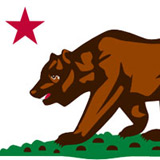By the Numbers
California Joins National Movement to Change the Way Presidents Are Elected
To the great relief of President Al Gore, Governor Jerry Brown has signed into law a measure aimed at dramatically reforming America’s creaky old method for choosing its commander in chief.
Gore, as every schoolchild knows, is one of four U.S. presidential candidates in history who won the most votes and lost to a rival sent to the White House by the vagaries of the nation’s Electoral College system.
Brown’s signature this month on a bill carried by Assemblymember Jerry Hill, a Bay Area Democrat, gave a major boost to a long-shot bid by a group called National Popular Vote to ensure the election of the presidential candidate who collects more votes than the other guys.

“It seems logical that the occupant of the White House should be the candidate who wins the most votes,” Brown said in signing the legislation. “That is basic, fair democracy.”
What a concept.
California is now the ninth member of an “interstate compact,” consisting of states formally pledged to cast all of their electoral votes for the popular vote winner — regardless of the voting results within the state.
“The bill preserves the Electoral College,” the group argues on its Web site, “while ensuring that every vote in every state will matter in every presidential election.”
Here is how it works:
• California has now officially promised its 55 electoral votes to the interstate compact, giving the coalition a total of 132. The compact, a political entity which organizers believe is authorized by the U.S. Constitution, includes Illinois — with 20 electoral votes — along with New Jersey (14), Washington (12), Massachusetts (11), Maryland (10), Hawai‘i (4), plus Vermont and the District of Columbia, with 3 apiece.
• This collection of electoral votes represents just under half of the 270 needed to trigger the agreement among them to support the popular-vote winner, beginning with the 2016 election.
• Another 32 states have a similar bill pending at some stage of the process in their Legislatures, while the measure has at least been introduced in the remaining 10 states, according to the California-based National Popular Vote organization.
The group is targeting elections like that of 2000, when Democrat Gore amassed a more than half-a-million popular-vote margin over George W. Bush, who nevertheless won the presidency by a tiny majority of electoral votes, amid a bitter dispute over ballots cast in Florida that was ultimately decided in the Republican’s favor by the U.S. Supreme Court.
More broadly, however, they also are seeking to force candidates to campaign for the support of voters in every state.
Contrary to widespread belief, the present Electoral College system is not required by the Constitution, which merely calls for the president to be selected by “electors” in the states. The current state-by-state, winner-take-all method, in which a state casts all of its electoral votes for the winner of the popular vote within the state, has evolved since the election of 1824; that year, Andrew Jackson lost the presidency despite winning the popular vote, as John Quincy Adams was made president by the House of Representatives, a result that’s known historically as the “Corrupt Bargain.”
Currently, a presidential race is not truly a national election, but rather a collection of 51 separate contests; because most states tend to vote consistently either Democratic or Republican, the balance of power routinely resides in a dozen or fewer “battleground states.” As a practical matter, this means that campaigns largely ignore voters and their concerns in states like California, which has not voted for a GOP candidate since 1988.
Ex-governor Arnold Schwarzenegger twice vetoed a popular-vote bill, saying it would disenfranchise Californians if the state had to cast its electoral votes for a candidate most voters here did not support.
Leaders of the reform effort, however, insist it is the present system that drives disenfranchisement.
“Voters are effectively disenfranchised in two-thirds of the states in presidential elections,” the group says. “In practical political terms, a vote matters in presidential politics only if it is cast in a closely divided battleground state.”



